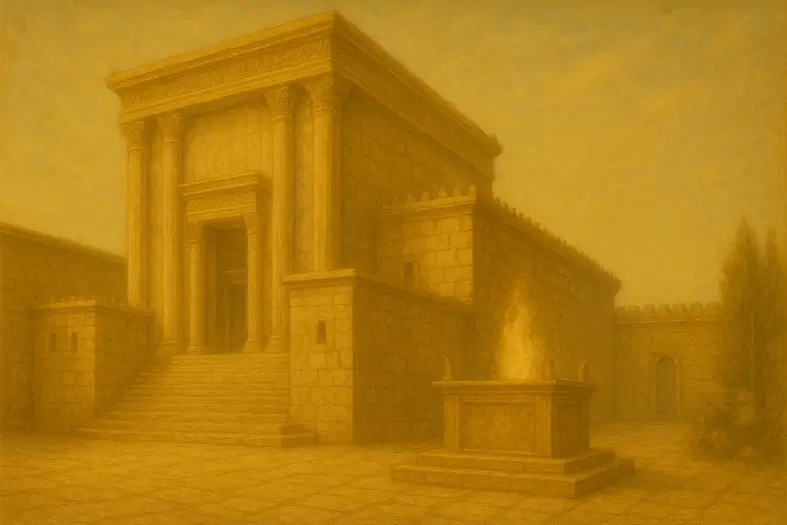


It is forbidden to eat the meat of sacrifices before their blood has been properly sprinkled on the altar.
This mitzvah forbids the consumption of sacrificial meat prior to the completion of its primary ritual—the sprinkling of the blood on the Mizbeach. The essence of a korban lies in its blood service, for “the blood is given on the altar to atone” (Lev. 17:11). To eat before this step is to sever the act from its sacred purpose.
Rambam codifies that eating even the smallest amount before sprinkling is a transgression. Sefer HaChinuch stresses that this mitzvah prevents people from seeing korbanot as mere food and ensures that their sacred nature remains intact. The Talmud makes clear that the blood service is the point of atonement, and until it is performed, the korban is incomplete. Rashi emphasizes that no benefit may be derived from the flesh until the blood has reached the altar. Ramban elaborates that this mitzvah symbolizes the hierarchy of service: Divine worship precedes human consumption.
Commentary & Classical Explanation:


Represents the concept of spiritual intentionality, purity, and sanctity—set apart for a higher purpose.
Concerns the Beit HaMikdash, korbanot (offerings), and priestly service.
Signifies awe and reverence toward Hashem—living with awareness of His greatness and presence.
Mitzvot that define and deepen the relationship between a person and their Creator. These include commandments involving belief, prayer, Shabbat, festivals, sacrifices, and personal holiness — expressions of devotion rooted in divine connection.

Dive into mitzvos, prayer, and Torah study—each section curated to help you learn, reflect, and live with intention. New insights are added regularly, creating an evolving space for spiritual growth.

Explore the 613 mitzvos and uncover the meaning behind each one. Discover practical ways to integrate them into your daily life with insights, sources, and guided reflection.

Learn the structure, depth, and spiritual intent behind Jewish prayer. Dive into morning blessings, Shema, Amidah, and more—with tools to enrich your daily connection.

Each week’s parsha offers timeless wisdom and modern relevance. Explore summaries, key themes, and mitzvah connections to deepen your understanding of the Torah cycle.